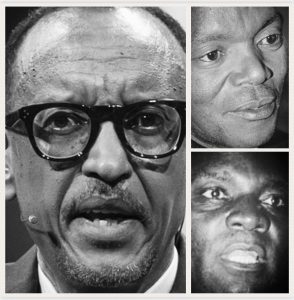By David Himbara
As we mourn our loved ones who departed from us during the 1994 Rwandan genocide, it is time to reflect on The Convention on the Prevention and Punishment of the Crime of Genocide. The Rwandan genocide in some way touched every Rwandan. I personally lost my sister and her children. I also lost my eldest sibling, who was a Jesuit brother in the Catholic Church. To all Rwandans who perished, bless you in your new world. Before we join you, some of us will fight against injustice with the tools we – pens and computer keyboards.
Regarding genocide, all law-abiding nations have committed themselves to The Convention on the Prevention and Punishment of the Crime of Genocide. The Convention was adopted by the United Nations General Assembly on December 9, 1948 as General Assembly Resolution 260. The Convention entered into force on January 12, 1951. Participating countries commit themselves to preventing and punishing actions of genocide in war and in peacetime.
What about Rwanda?
The government of Gergoire Kayibanda that came to power in 1962 never signed and ratified or acceded to the Genocide Convention to prevent and punish actions of genocide in war and in peacetime.
The government of Juvenal Habyarimana that came to power in 1973 signed the Genocide Convention on April 16, 1975. But when ratifying the Convention, Habyarimana put the following reservation: “The Rwandese Republic does not consider itself by Article IX of the Convention.” Article IX that Habyarimana nullified empowers the International Court of Justice to make rulings on genocide. In other words, Habyarimana made sure that the International Court of Justice did not have jurisdiction over Rwanda. Habyarimana was therefore no better than Kayibanda. Both men were not prepared to be held accountable for crimes against humanity.
Is Kagame any better when it comes to The Convention on the Prevention and Punishment of the Crime of Genocide? The answer is no. Rwanda passed the Decree No 014/01 of 15 February 1995 that removed the 1975 Habyarimana reservation. But when DRC took Rwanda to the International Court of Justice in 2002 for causing the death of millions, the Kagame government denied it had ever removed the Habyarimana reservation. The Kagame government argued that it never officially communicated to the United Nations about the 1995 Decree. Therefore, the International Court of Justice had no jurisdiction over Rwanda. In other words, Habyarimana saved Kagame from being held accountable for killings in DRC. We see that Kayibanda, Habyarimana, and Kagame are birds of the same feathers.
Fellow Rwandans, free your minds. Forget the ethnic labels Rwandan rulers apply to their regimes. The regimes are essentially the same. Nothing proves this more than the fact that each regime uses the Genocide Convention as a tool to avoid justice for crimes against humanity.
The French writer, diplomat and philosopher Joseph de Maistre famously stated that every nation gets a government that it deserves. This is particularly true for Rwanda where to this day millions follow “their own kind” while the rulers are essentially the same. The dictators are self-serving, power-hungry, and cling to power until removed by brute force – thereby plunging Rwanda into yet another round of violence.
































































